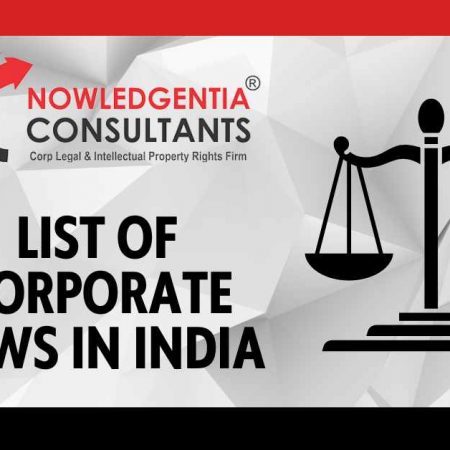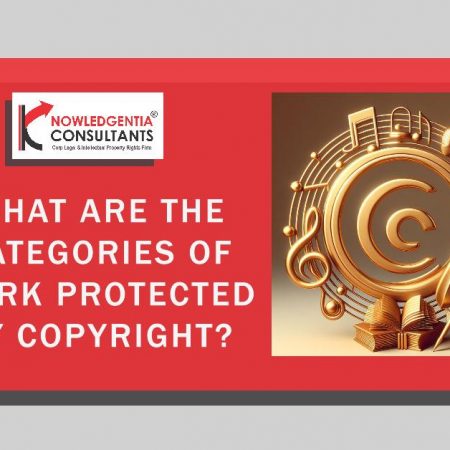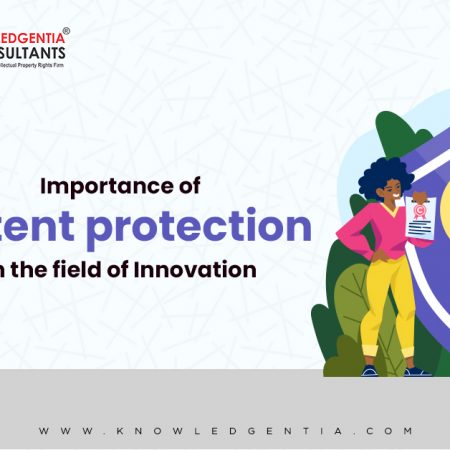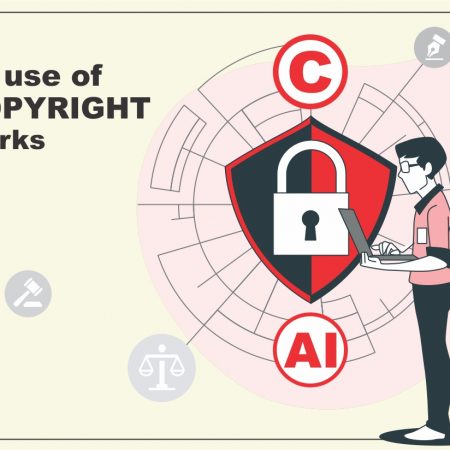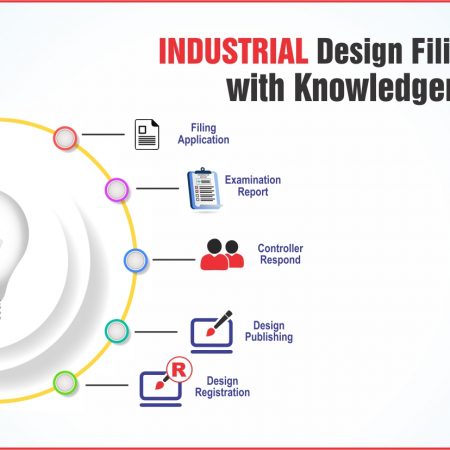PRE AND POST- GRANT OPPOSITION
INTRODUCTIONPatent refers to an exclusive territorial right which is granted to an inventor of a product or process, which offers a new method of doing something or provides a technical solution to a problem. There may be a certain situation where the person applying for a patent has wrongfully obtained another person’s invention, or the invention is obvious or is already publicly used in the territory. In such circumstances, third parties can oppose the grant of an invention. The same is referred as “opposition proceedings”. There are two types of opposition proceedings, provided within the purview of the Indian Patent Act, 1970, that allows citizens to raise objections against the invention/process for which the patent is sought, namely pre and post grant opposition. Knowledgentia Consultants has a team of one of the best patent consultants in India, who can provide expert advice on matters concerning, filing, opposition and enforcement of patents.
TYPES OF OPPOSITION
- PRE-GRANT OPPOSITION:- A type of opposition proceeding wherein, the objection is made before the grant of the patent. When the application for a patent is published, it becomes available to the general public. Anyone can access the application by visiting the official website online and can access the complete specification of the invention. The Indian legislature, intentionally provides a provision that prohibits the grant of patents until a period of 6 months from the date of publication. The purpose of the same is to provide a time period to people if they wish to raise a valid objection, if any, against the invention. The grounds on which objection(s) can be raised and the patent may be refused or asked to be amended includes:
- Prior publication: if the opponent finds that the invention is already there in the public domain before the priority date,
- False/Incomplete disclosure: if the opponent finds that the invention discloses insufficient or false specifications or does not include necessary/relevant information needed to be disclosed,
- Wrongful obtainment: if the invention’s details/ideas are wrongfully obtained from the opponent,
- Traditional knowledge: if the opponent(s) belongs to an indigenous community wherein, the features of the invention or the invention, on a whole, are considered a traditional knowledge,
- Prior claim: if the opponent finds invention is previously claimed in some other patent application, which was published before the priority date of the invention.
Additionally, grounds for objection also include, obviousness, non-patentable subject matter, time limit, and, biological material. So, if the examiner believes that the objection(s) put forth by the opponent(s) are in accordance with the Section 25(1) clauses (a) to (k) of the Patent Act, then the examiner informs the applicant to submit his own statement and evidence, within three months from the date of notice, and after examining the applicant’s evidence, decides whether the patent has to be granted or not or if there’s a need for amendment. If the examiner believes that the objection(s) put forth by the opponent(s) are not in accordance with the Section 25(1) clauses (a) to (k) of the Patent Act, then he rejects the opposition by passing a speaking order.
Here, no fee is required to be paid and infringement proceedings cannot be initiated since the patent rights have not yet been granted.
PRE-GRANT OPPOSITION CASES:
- NOVARTIS AG. VS CIPLA LTD. ON 14 OCTOBER, 2006
In this case, M/s. Novartis AG filed an application for patent, claiming Switzerland priority date of 18th July 1997, on 17th July 1998 for an invention titled “Crystal Modification of A.N.-Phenyl-2-Pyrimidineamine derivative, processes for its manufacture and its use” and the same was allotted the application No. 1602/MAS/1998. The invention involved preparation of crystal form of methanesulphonic acid salt called as imatinib mesylate. A pre-grant opposition was filed by M/s. Gopakumar Nair Associates, Mumbai on behalf of M/s. CIPLA Ltd., Mumbai on 5th July 2005, with a request for hearing under Rule 55 of the Patents Rules, 2003 as amended by Patents (Amendment) Rules, 2005. The controller concluded that the subject matter of the application was not patentable under Section 3(d) of the Patents Act, 1970 as amended by the Patents (Amendment) Act, 2005 and hence refused to proceed with the application for Patent No. 1602/MAS/1998.
- (MISS) SNEHLATA GUPTE VS UNION OF INDIA & ORS. ON 15 JULY, 2010:
In this case, J. Mitra & Company (Respondent No.5) filed two patent applications (Nos. 590/Del/2000 and 593/Del/2000),
- A Device for the detection of antibodies of Hepatitis C virus in human serum and plasma (Patent No. 194368), and
- A device for the detection of Hepatitis C virus (Patent No. 194639)
in the Office of the Controller on 14th June 2000. The patent specifications involved in the two applications were published in the official gazette on 20th November 2004 in terms of Section 11A of the Act. At that stage, Section 25 of the Act had not been amended. Under Section 25 of the pre-amended Act, an opposition to the grant of patent had to be filed within four months from that day i.e., the date of publication which period could be extended by one month upon the Controller being satisfied by the reasons given for such delay. However, Span Diagnostics Ltd. filed a pre-grant opposition which was rejected by the Controller on 23rd August 2006. After the grant of the aforementioned patents in its favour, J. Mitra & Co. filed a civil suit in court against Kesar Mendicaments (KM) and SDL for patent infringement. By a judgment dated 22nd February 2008, the court granted an injunction restraining KM and SDL from manufacturing, selling, offering for sale their HCV Signal or any other product which was in infringement of J. Mitra & Co. Patent No. 194638. It was stated that in the said suit SDL has filed a counter claim for revocation of the patent. The court, after considering the order passed on 23rd August 2006 (which notified that the patent in question has been granted and the pre-grant opposition filed by SDL has been rejected) held that any pre-grant opposition filed after 23rd August 2006 was clearly barred under Section 25 (1) of the Act and therefore the impugned orders of the controller rejecting the pre-grant oppositions filed by the petitioners were valid and did not call for interference. The court further held that the filing of pre-grant opposition by Dr. Gupte and Dr. Rindani subsequent to 23rd August 2006 was, apart from being not maintainable in law, also an abuse of the process of law.
Finally, the court gave a verdict that it found absolutely no merit in the four Writ Petition(C) Nos.3516, 3517, 5422 and 5423 of 2007 in the first set and they were dismissed with costs of Rs.20,000, each which were to be paid by each of the petitioners to J. Mitra & Co. within a period of four weeks.
- THE REGENTS OF THE UNIVERSITY OF CALIFORNIA VS. UNION OF INDIA AND ORS. ON 16 MAY, 2019:
The petitioner, The Regents of the University of California filed an application for grant of patent in respect of its invention, named “Diarylhydantoin Compounds” on 13th December 2007. The said application was a national phase application of PCT International Application No. PCT/US2006/011417, which was filed on 29th March 2006. The petitioner had made fifty one claims in its International application, however, it entered its application for the National Phase in respect of only forty six claims. The principal claim was for a patent in respect of the formula referred to as ‘Enzalutamide‘. However, the said application was opposed by respondent no.3 to 7 and each one of them filed their respective pre-grant oppositions. Finally, the controller passed the order on 8th November 2016 against the petitioner. In response, the petitioner filed a petition before the Delhi High Court challenging the order of the controller rejecting its patent application following pre-grant representations filed by the respondents. The petitioner contended in the case that the controller by not considering affidavits of experts, and by accepting additional submissions after oral submissions violated principles of natural justice. The Court agreed with the Petitioner and set aside the order of the Controller.
- YAHOO! INC (FORMERLY ‘OVERTURE SERVICES INC.) VS INTELLECTUAL PROPERTY APPELLATE BOARD ON 29 JULY, 2010: Overture Services Inc. filed a patent application titled “System and method for influencing a position on a search result listing generated by a computer network search engine”, and the title was later amended to “A method of operating a computer network search apparatus”. This application claimed priority to a US application 09/322677 dated 28th May 1999. Yahoo acquired Overture in 2003. While undergoing examination at the Indian patent office, the examiner raised 17 objections against the application in the First Examination Report (FER). These objections were made under Section-3(k) and against novelty. The Controller informed Yahoo that the invention did not pass the novelty and patentability test in late March 2009.
- POST-GRANT OPPOSITION:- This is the type of opposition proceeding wherein, the objection is made after the patent has been granted.
Once, the patent has been granted, there’s still a way to oppose the grant. According to Section 2(1)(t) of the Patent Act, 1970, only “interested parties” can oppose the patent after it has been granted. These people/entities are those who are specifically involved in or promoting research in the field to which the patent pertains, or those who have manufacturing, trading, or financial interest in the patented invention.
The grounds on which objection(s) can be raised fall under Section 25(2) of the Patent Act and includes all objections included in case of filing pre-grant opposition.
Rules 55A to 70 of Patent Rules, 2003 includes the procedure for filing the post-grant opposition wherein it is also mentioned the all representations for opposition must be made in accordance with Form 7 of the Act to the Controller General of Patents.
According to Rule 56, the controller, after receiving the notice from the opposition, forms an “opposition board”, comprising of three members, who then examine the statements and evidences of both, the applicant and the opponent and in accordance with the Rule 62, decides the case.
Here, a fee of rupees 1500 (in case of a person) and 6000 (in case of an entity) is required to be paid and infringement proceedings can be initiated since the patent has already been granted.
POST-GRANT OPPOSITION CASES:
- C. BAMFORD EXCAVATORS LTD VS UNION OF INDIA AND ORS. ON 5 APRIL, 2019:
The petitioner, filed for a patent in respect of an invention, titled “Excavating and Loading Machine” on 11th May 2015. The petitioner’s patent application was published under Section 11A of the Patents Act on 9th January 2009 and patent No.251037 was granted to the petitioner on 17th February 2012. There was no pre-grant opposition to the patent. However, respondent No.3, filed a post-grant opposition against the petitioner’s patent on 22nd February, 2013 on various grounds, inter alia, that the petitioner’s invention lacked novelty and inventive steps.
Despite the withdrawal of the post-grant opposition by respondent No.3, the Deputy Controller of Patents and Designs proceeded to hear the matter and passed the impugned order dated 9th April, 2018. The Deputy Controller of Patents and Designs held the petitioner’s invention to be novel and inventive under Sections 2(1)(j) and 2(1)(ja) of the Patents Act. However, the Deputy Controller of Patents and Designs revoked the patent on the ground that the petitioner kept the Authority in dark with respect to the litigation pending between the petitioner and respondent No.3; and the petitioner did not inform the Patents Office with respect to an application filed in Australia.
- CIPLA LTD VS UNION OF INDIA & ORS ON 27 NOVEMBER, 2012: Sugen Inc. USA and Pharmacia and Upjohn Company USA, filed an application on 9th August 2002 for the grant of patent on Sunitinib drug. The patent primarily was related to three-pyrrole substituted indolinone compounds of formula I, which fits into the ATP binding site of receptor tyrosine kinases, thereby preventing Kinase activation, and further signal transduction.
The application was recommended for grant of patent on 23th August 2007 and was finally alloted the patent No.209251, which was published in the Patent Office Journal under Section 43(2) of the Patents Act, 1970.
A post-grant opposition was filed by Cipla Ltd, under section 25(2), just a few days before expiry of the 12 month time period (from the date of publication of the grant in the official journal) for filing a post grant opposition, under the Indian Patents Act 1970. Cipla filed the opposition on the following grounds:
- The claimed invention was publicly used in India before the priority date of claim,
- The invention as claimed was obvious, and did not involved an inventive step,
- The subject matter of any claim of the patent was not an invention within the meaning of the Patent Act,
- The patentee failed to disclose information as required under section 8 of the Patent Act.
Cipla cited three documents (all were petitioner’s patented documents) to show a lack of inventive step. Cipla relied on the fact that all the documents were related to the same field of invention, and were related to similar compounds used to treat the same diseases.
They, then cited the third prior art document, which disclosed compounds with a different core structure to provide the polar substituent (diethylamino)ethyl substituent. Cipla further concluded that modifying the compounds of the first two prior arts, and replacing the alkyl substituent with the polar group of the third prior art, would obviously lead a person skilled in the art to the compounds claimed in patent IN209251, therefore, they argued the compounds of patent IN209251 were obvious.
The controller in her decision specifically mentioned the recommendations of the Opposition Board under section 25(4) of the Patents Act, which stated patent to be revoked as it did not involved an inventive step under section 2(1)(j) of the Patents Act.
However, soon after the decision, the petitioner filed a writ before the Delhi High Court, which was based on the grounds of natural justice and principles of equity, in that the recommendations of the Opposition Board were not supplied to the parties, and were relied on by the controller in making her decision.
Proceedings took place before a single judge, and then the Division Bench of the High Court and the Supreme Court of India.
The result of the proceeding directed The Patent Office to rehear the matter and the patent was re-instated.
Finally, another hearing took place in The Patent Office, wherein the controller re-affirmed her initial decision to revoke the patent, as it lacked inventive step.
- MARIAPPAN VS A.R.SAFIULLAH ON 30 JUNE, 2008
A.R.Safiullah, sole proprietor and trading as S.A.Safiullah & Company filed for a patent on an invention, titled, “Food grade laminated paper, method and an apparatus for manufacturing the laminated paper”. The patent was granted on 20th January 2006 and had the Indian Patent number 198079 (693.MAS/2000).However, post-grant opposition was filed by Mr. M. Mariappan under section 25(2) of the Act. The controller conducted a hearing calling both the parties to attend the same and issued a decision finally under section 25(2) of the Act revoking the Patent granted earlier.
At Knowledgentia, with expert and foremost patent consultants in India, we assist our clients in making patent searches, drafting, filing, opposition, prosecution, technology transfers and commercialization of research activities a rewarding, value creating and a smooth process. You may visit our website https://knowledgentia.com/ or email us at info@knowledgentia.com for any related queries.




